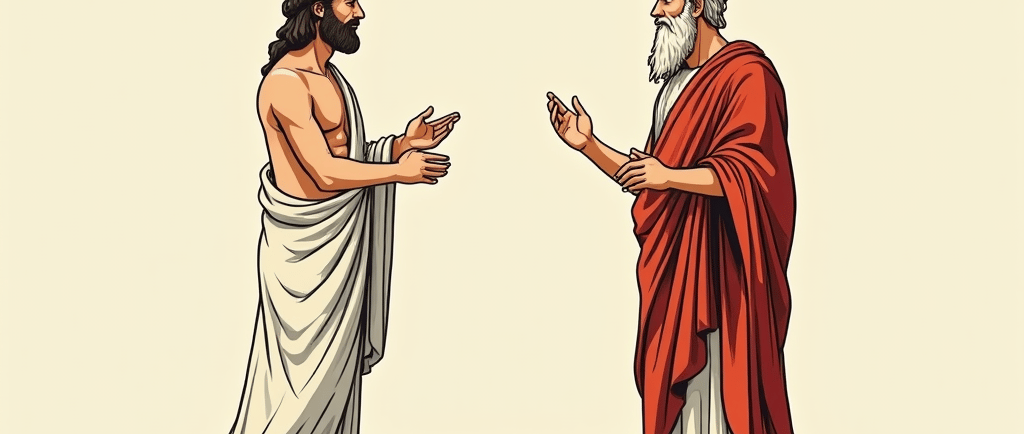Did the Stoics Believe in Fate?
The concept of fate played a central role in Stoic philosophy, but the Stoic understanding of fate was complex and often misunderstood. The Stoics did believe in a kind of determinism, but they also emphasized the importance of human choice and moral responsibility. Let's explore the nuances of the Stoic view of fate.
STOICISM
9/29/20242 min read


The Stoic Concept of Determinism
At the heart of Stoic philosophy was the idea of a rational and orderly universe, governed by a divine reason or logos. The Stoics believed that everything that happens is determined by this logos, which they sometimes referred to as God or fate.
In this sense, the Stoics were determinists, holding that all events are caused by prior events in an unbreakable chain of cause and effect. They believed that everything that happens is meant to happen, and that the universe unfolds according to a predetermined plan.
Fate and Free Will
However, the Stoic view of fate was not a simple one. They also believed in the importance of human free will and moral responsibility. The Stoics held that while we may not be able to control external events, we always have the power to choose our own thoughts, attitudes, and responses.
The Stoic philosopher Chrysippus used the analogy of a dog tied to a cart to illustrate this idea. The dog can either willingly run along with the cart, or it can resist and be dragged along. Similarly, we can either accept and align ourselves with the course of fate, or we can resist and struggle against it.
The Stoic Attitude Toward Fate
For the Stoics, the wise and virtuous person accepts and embraces their fate, seeing it as an expression of the rational order of the universe. Rather than resisting or lamenting what happens, the Stoic strives to maintain equanimity and to find opportunity and purpose in every situation.
The Stoic philosopher Epictetus wrote, "Do not seek for things to happen the way you want them to; rather, wish that what happens happen the way it happens: then you will be happy." This attitude of acceptance and resilience in the face of fate was a key aspect of Stoic practice.
Fate and Moral Responsibility
At the same time, the Stoics did not see fate as an excuse for moral complacency or inaction. They believed that we have a moral duty to strive for wisdom, justice, and the common good, even in the face of adversity.
The Stoic philosopher Seneca wrote, "Fate guides the willing, drags the unwilling." In other words, we can either cooperate with fate and act with virtue and purpose, or we can resist and be pulled along against our will.
Conclusion
The Stoic view of fate was a nuanced one, recognizing both the determinism of the universe and the power of human choice and responsibility. The Stoics believed that everything happens for a reason, but they also emphasized the importance of accepting, aligning with, and making the best of one's fate.
By cultivating wisdom, virtue, and resilience, the Stoics believed that we can find freedom and fulfillment even in a world governed by fate. This perspective continues to offer insight and inspiration for those seeking to navigate the challenges and uncertainties of life with grace and equanimity.
Waste no more time arguing about what a good man should be. Be one - Marcus Aurelius
We suffer more often in imagination than in reality - Seneca
Wealth consists not in having great possessions, but in having few wants - Epictetus
